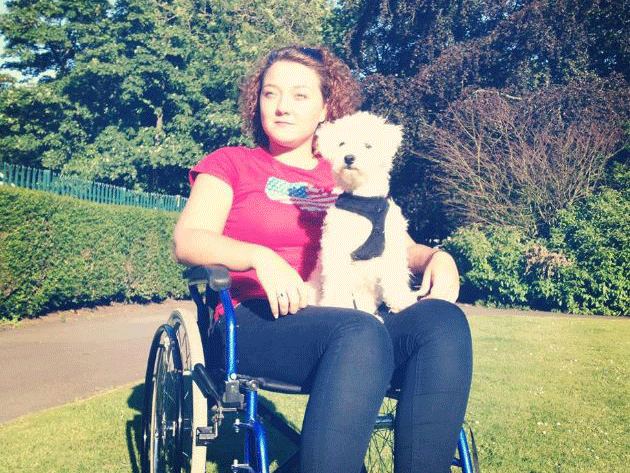Woman who ate unpasteurised cheese speaks out after three years of chronic illness
The brucellosis bacteria has left Ms Philpott too weak to move easily without a wheelchair

Your support helps us to tell the story
From reproductive rights to climate change to Big Tech, The Independent is on the ground when the story is developing. Whether it's investigating the financials of Elon Musk's pro-Trump PAC or producing our latest documentary, 'The A Word', which shines a light on the American women fighting for reproductive rights, we know how important it is to parse out the facts from the messaging.
At such a critical moment in US history, we need reporters on the ground. Your donation allows us to keep sending journalists to speak to both sides of the story.
The Independent is trusted by Americans across the entire political spectrum. And unlike many other quality news outlets, we choose not to lock Americans out of our reporting and analysis with paywalls. We believe quality journalism should be available to everyone, paid for by those who can afford it.
Your support makes all the difference.A young woman who became infected with an aggressive bacteria – apparently after eating unpasteurised goat's cheese on holiday – has told of experiencing "end-my-life" type of pain more than three years later.
Samantha Philpott, who lives in Southport near Liverpool, ate untreated goat's cheese with her salad, pizza and sandwiches during a family holiday on the island of Kos in Greece in 2013.
After the trip, the 19-year-old suffered from migraines, vomiting and became too weak to walk, requiring a wheelchair.
Now aged 22, she suffers from insomnia, memory and speech loss and what she described as "wanting-to-end-my-life" type of pain.
According to the NHS, the bacteria, called brucellosis, can cause life-threatening complications but is rarely fatal.
It says: "Symptoms tend to last a long time and can make you feel very ill, but most people will eventually make a full recovery after treatment."
In a Facebook post, Ms Philpott wrote: "Friday was a really bad day. I was so weak [...] vomiting horrendously, fever so bad the sweat was pouring out of me, the pain was brain-breakingly excruciating and my heart rate was so high they couldn't believe I was still conscious, speech slurred and incoherent because of bad brain function.
"This has been happening most days, so it's been rough."
Ms Philpott's parents have become her full-time carers as doctors seek to alleviate her pain and find a long-term treatment.
Medication includes hydrotherapy, dietary supplements, daily intravenous injections with amino acids, vitamins and the antioxidant glutathione, as well as a cocktail of antibiotics.
Extreme pain and fatigue means she often has to use a wheelchair to move around.
"The doctor said I'm going to get a lot worse, like seriously horribly worse, before I can start to get better," said Ms Philpott, explaining this was called the "herxheimer reaction" whereby the body undergoes a form of detoxification before improving.
She added heartfelt thanks for the messages of support from friends and strangers which span back over three years on her Facebook page.
"You're all helping me massively fight these pesky dieseases and I just don't know how to thank any one of you," she wrote.
Brucellosis is found in some types of unpasteurised milk but can also be caught by inhaling it in dust from infected farms or abattoirs or by direct contact with infected animals.
Join our commenting forum
Join thought-provoking conversations, follow other Independent readers and see their replies
Comments